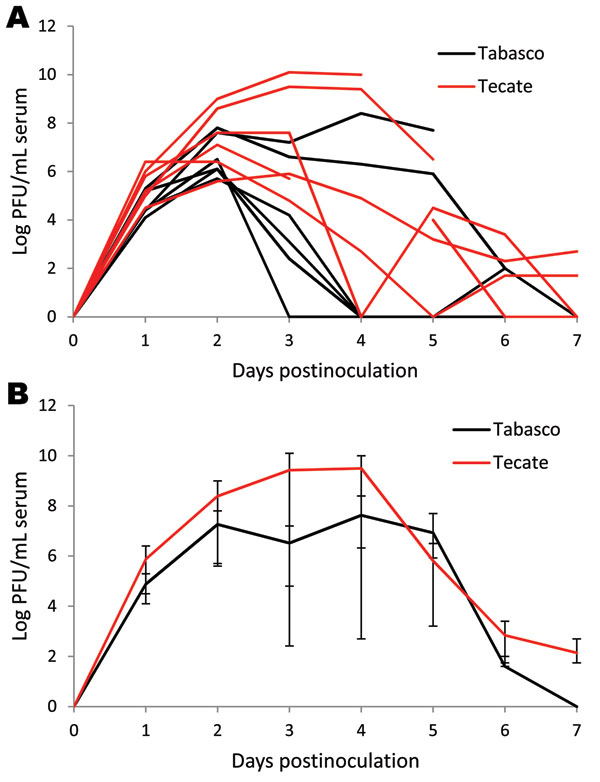Volume 17, Number 12—December 2011
Research
West Nile Virus Infection of Birds, Mexico
Figure 1

Figure 1. Viremia profile for house sparrows experimentally inoculated with Tabasco or Tecate strains of West Nile virus. Virus titers are plotted on a logarithmic scale. A) Individual birds; B) group means. Error bars represent ranges of observed titers.
1Current affiliation: El Colegio de la Frontera Sur, Campeche, Mexico.
Page created: November 30, 2011
Page updated: November 30, 2011
Page reviewed: November 30, 2011
The conclusions, findings, and opinions expressed by authors contributing to this journal do not necessarily reflect the official position of the U.S. Department of Health and Human Services, the Public Health Service, the Centers for Disease Control and Prevention, or the authors' affiliated institutions. Use of trade names is for identification only and does not imply endorsement by any of the groups named above.